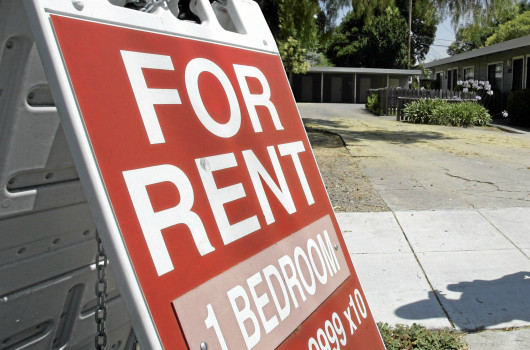The number of wealthy Bay Area residents who are renting rather than buying has surged dramatically in recent years.
A new study by RentCafe found the number of millionaire renters increased fourfold in parts of the Bay Area between 2019 and 2023. Nationally, the number tripled, outpacing the growth of millionaire homeowners.
Related Articles
Newark apartment complex bought for much less than prior value
19% of California houses are owned by investors
Southern California rent inflation cools slower than US
1.4M of the nation’s poorest renters risk losing their homes with Trump’s proposed HUD time limit
Where in California do investors own the most houses?
The study, in which the apartment rental site examined U.S. census data, defines millionaires as individuals from households that earn over $1 million a year.
“Owning a home isn’t the right choice for everyone, and larger-income buyers are starting to discover that,” said Doug Ressler, a researcher on the study. “Renting makes a good choice from a budgetary standpoint, because renting is cheaper than buying.”
While home-owning millionaires still vastly outnumber millionaire renters nationally, the study found the number of millionaire renters increased 204% from 4,512 to 13,692, while millionaire owners increased 169% from 52,966 to 142,320.
According to real estate agents, the trend is driven by three key factors: a decline in the desirability of homeownership, the rise of a class of tech professionals who prefer a nomadic, flexible lifestyle, and financial concerns about the wisdom of losing liquidity by investing in a home.
The Bay Area, in particular, experienced a steep rise in millionaire renters. The number in San Francisco rose from 321 to 1,411, and in San Jose it jumped from 173 to 577.
Katie Fones, a San Francisco-based real estate agent at Compass Real Estate, said the rise of the millionaire renter is the culmination of a decades-long shift in people’s perceptions of homeownership as a critical social marker.
“The dream of homeownership has changed dramatically since I was a kid growing up,” she said. “Owning a home is no longer the pinnacle of someone’s economic dreams.”
Instead, Fones said that homeownership had become a chore to many of her clients. One of those – a multi-millionaire with young children – is currently in the process of selling their San Francisco property to become a renter.
“They’re just tired of things breaking and things leaking, and just not wanting to spend their extra funds on those things, and their time,” she said. “So they’re wanting the flexibility of living in a different neighborhood for a year, and then maybe living in a different neighborhood in year two.”
Generational differences were another factor behind the rise in millionaire renters, Fones said.
“People who are younger, under 40, are looking more toward the flexibility that renting gives them,” she said. “This is a real generalization, but over 40, maybe once you start to have a family, there’s more stability with buying.”
Carrie Friedberg, a financial consultant and founder of SF Money Coach, a personalized financial coaching company, agreed. In the past decade, she’s worked with more younger clients with sky-high tech salaries who gravitated toward renting as a lifestyle choice.
“Those million-dollar salary levels used to be a reward for long careers, but the industry of tech has changed so much,” she said. “The huge investment and commitment of being locked into a home and sinking tons of cash and then monthly cash into that is scary and overwhelming for a lot of people, especially if they’re young and single, dating, traveling, having lots of adventures.”
San Francisco-based real estate agent Qian Xu, who earned a Ph.D. in artificial intelligence before starting her real estate career, said that the AI boom in particular had allowed for a flourishing of young, nomadic millionaires.
One client, Xu said, worked at Coinbase, a cryptocurrency exchange, which has a market cap of over $100 billion and no office.
“He travels around the world,” she said. “He can work remotely, and at the same time, he can explore the world.”
Overall, Xu said, her millionaire clients can be classified into two groups. There are those who are middle-aged, have families and have acquired their wealth from being early investors in tech stocks that have since skyrocketed in value. The second is composed of recent AI Ph.D. graduates who’ve found themselves among the nouveau riche due to the tremendous pay packages offered by big tech companies.
These two groups, she said, are diametrically opposed in their lifestyle goals and differ fundamentally on the question of whether to buy or rent. The key divider between them, she said, is marital status.
“I think married people would love to have [a house] to welcome their children, so they want to buy a single-family house,” she said. “But if you are a single young guy, then you just want to live in a very downtown area, with quick access to restaurants and clubs. They look for a couple of months and they say ‘You know what? The townhouse or condo is in the downtown area, but the return on investment is not so good. So let’s rent.’”
Manoj Viswanathan, a professor specializing in tax law at UC Law San Francisco, said a third driver is that real estate just isn’t as appealing an investment option anymore. He pointed at Proposition 13, a 1978 amendment to the California constitution that capped property taxes and provided a substantial financial incentive for homeowners not to sell.
“If you think about a millionaire that’s renting a house that was purchased by the owner a while ago, the owner’s Prop 13 rate is pretty low, and that means the rent that’s being charged is lower significantly on a cash flow basis than that of a house purchase,” he said. “And in the Bay Area, the difference between those two numbers is going to be higher than in other places.”
With remote work still prevalent in the Bay Area, Viswanathan said millionaires with children are placing a higher priority on factors like school quality. High interest rates also likely played a role in pushing some millionaires away from buying a home.
“If you buy a place, there’s upfront capital, there’s closing costs, and you’re probably committing to five years,” he said. “You may not need to do that if you’re renting. You could just rent for a shorter time frame and then maybe buy when you think [interest] rates are going to go down.”
Ressler, the researcher, said developers were already scrambling to capitalize on the trend.
“Developers are responding by building more luxury multifamily units with premium amenities, concierge services and flexible lease terms,” Ressler said.
But he expressed concerns that the shift could hurt middle-class and lower-income families.
“The influx of wealthy renters can inflate rental prices in premium neighborhoods, potentially displacing middle-income renters and exacerbating affordability issues,” he said.
Ultimately, Ressler said, the trend was a microcosm of a deeper, intrinsic problem with the housing market in modern-day America.
“If even the wealthy are opting out of ownership, it may signal that the system is increasingly inaccessible to average earners,” he said. “Policymakers may need to reframe the American Dream narrative and focus more on housing stability than ownership.”




